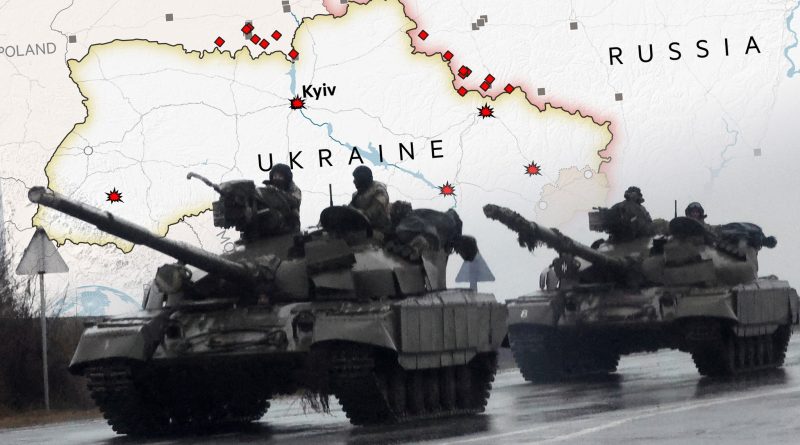Inside wartime Russia, Putin isn’t losing… “Otherwise, it’s just impossible to live with,”
Western sanctions and condemnations intended to pile pressure on Vladimir Putin instead seem to be rallying Russians behind him.
What they’re saying: The more horrific the allegations against Russia — such as the apparent massacre of civilians in Bucha— the stronger the impulse to reject them as lies, says Grigory Yudin, a sociologist at the Moscow School of Social and Economic Sciences.
“Otherwise, it’s just impossible to live with,” Yudin says.
Yudin says Russians believe implicitly that it’s impossible to change Putin’s behavior. And so while perhaps half of the population supports Putin unconditionally, many others do so out of self-preservation.
“You need some storyline that tells you how things are fine. And basically the government provides them with this storyline, so they’re willing to support it because it helps them to survive,” he says.
Driving the news: Anything or anyone that doesn’t support the Kremlin line is being suppressed. Demonstrators and journalists face up to 15 years in prison for protesting the war or reporting truthfully on it. The protests that began after the invasion have largely died down.
On the ground: Russian shoppers can no longer buy many Western products or use certain payment methods, and many goods they can buy are now more expensive thanks to the sanctions. But they don’t blame Putin, says Yana, a journalist in Moscow who asked that we not use her last name.
“Oh, what is this West doing to us?'” she recalls a cashier saying when she visited a town outside the city. “The sanctions just reassured people that the West is evil.”
The sanctions have only amplified the sentiment among most Russians that western aggression caused this conflict in the first place, says Denis Volkov, director of the Levada Center, Russia’s top independent pollster.
“For the majority, it’s not about Ukraine. It’s about Russia and the West fighting inside Ukraine,” Volkov says. In focus groups, Russians will complain that their lives are getting harder, while at the same time praising Putin for standing up to the U.S., he says.
By the numbers: 81% of Russians approved of the invasion as of March 30, and Vladimir Putin’s approval rating has climbed to 83%, according to Levada’s polling — though the fact that opposition to the war has been criminalized makes those numbers harder to interpret.
Even among supporters of the war, “there is no euphoria,” Volkov says. “Deep down there is some understanding that the situation is serious,” and even some of Putin’s supporters feel “traumatized” by what’s taking place, he says. He thinks most Russians want the conflict to end.
Young, patriotic Russians who oppose the war are being labeled traitors and feeling increasingly isolated, Yana says. Many educated Russians are fleeing the country, including Yana’s best friend.
“For those Russians who oppose the war, what is going on now is a complete national tragedy,” Yudin says. “Not simply because Russian troops are participating in doing terrible things to our closest neighbor, but also because it destroys the future of the country.”
There is one figure in Russia who has called tens of thousands of protesters into the streets in the past. But Alexei Navalny was just sentenced to nine more years in a remote prison, and his top aides are all in exile after his Anti-Corruption Foundation was labeled an “extremist” group.
“People don’t join the Russian opposition because they expect quick victories,” says Vladimir Ashurkov, who runs the foundation. But he points to shakeups at the top of the Russian government as a sign that tensions are growing.
“I think that within five years, we’ll see a real change of the political construction in Russia,” he predicts.
Bottom line: Discontent in Russia stemming from this war could eventually become dangerous for Putin. But for now, most Russians appear to be standing behind him.





